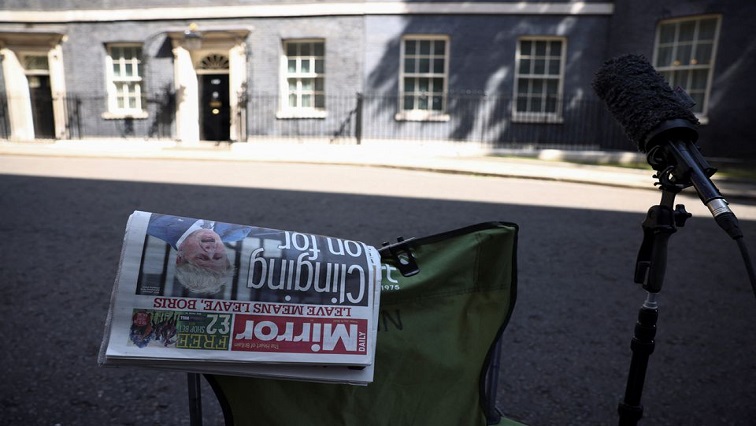The race to succeed Boris Johnson as British prime minister has begun, with 11 candidates so far putting themselves forward for a contest which will ultimately be decided by around 200 000 Conservative Party members.
Below is what the bookmakers’ top three favourites have said on key issues.
Rishi Sunak – current favourite
On tax: As finance minister, Sunak set Britain on course to have its biggest tax burden since the 1950s.
“Do we confront this moment with honesty, seriousness and determination? Or do we tell ourselves comforting fairy tales that might make us feel better in the moment, but will leave our children worse off tomorrow?”
One of his backers, Conservative lawmaker Robert Jenrick, warned against promising unfunded tax cuts in the heat of a leadership election. Sunak would focus on growth and “cut taxes as quickly as we sensibly can,” Jenrick told BBC radio.
According to his team, Sunak will promise to cut taxes once inflation, which hit a 40-year high of 9.1% in May, had been brought under control.
On immigration: Sunak’s campaign launch video began with a reference to his grandmother who moved to Britain in the 1960s. His spokesman told The Times newspaper he was proud to come from a family of immigrants but he believed the UK must control its borders, and would retain the plan to deport asylum seekers to Rwanda.
On Brexit: Sunak voted for Brexit in 2016.
Other pledges: Sunak used one of his first campaign pieces to talk about women’s rights: “I will protect women’s rights and ensure women and girls enjoy the same freedom most males take for granted in feeling safe from assault and abuse.”
Penny Mordaunt
On tax: Mordaunt wrote in the Telegraph newspaper: “Whilst I will cut taxes, I will pioneer sound money, with a key fiscal rule to ensure that debt as a percentage of GDP falls over time.”
She has said she will introduce an immediate 50% cut in VAT on fuel until at least April 2023, funded by increased VAT revenues as a result of inflation, and raise basic and middle earners’ tax thresholds in line with inflation.
On cost of living: “Our economy is faced with the twin problems of soaring inflation and falling confidence – with a real risk of recession ahead. My government will focus on getting inflation under control, working closely with the independent Bank of England. We cannot risk spiralling wages and prices that lead to lower standards of living and loss of jobs.”
On Brexit: Mordaunt campaigned for the ‘Vote Leave’ group during the 2016 Brexit referendum.
In a December 2021 speech as a junior trade minister she said: “Brexit is not an event to be mourned by the international community. Or an act of self-harm or one that requires us to be punished. It is a massive opportunity to anyone who believes in democracy and the power of trade as a force for good in the world.”
Liz Truss
On tax: Truss wrote in the Telegraph: “I would start cutting taxes from day one to take immediate action to help people deal with the cost of living. It isn’t right to be putting up taxes now.”
Truss said this would include reversing a rise in social security contributions which came into effect in April and making sure Britain keeps corporation tax “competitive”.
On the economy: She has said she plans to get Britain “back on track towards becoming a high-growth and high-productivity powerhouse”, including through “bold supply-side reform”.
On immigration: Truss has not publicly commented on the government’s Rwanda immigration policy since declaring her candidacy, but was a member of the cabinet that approved it.
On Brexit
Truss voted to remain in the European Union but soon said she had changed her mind. Her supporters have said she plans to drive forward regulatory divergence from the EU, including overhauling business regulation, to spur a more dynamic economy.
As Foreign Secretary she introduced legislation to parliament to unilaterally override some post-Brexit trade rules for Northern Ireland, a policy stance she is expected to pursue. That deepened tensions between the two sides.


